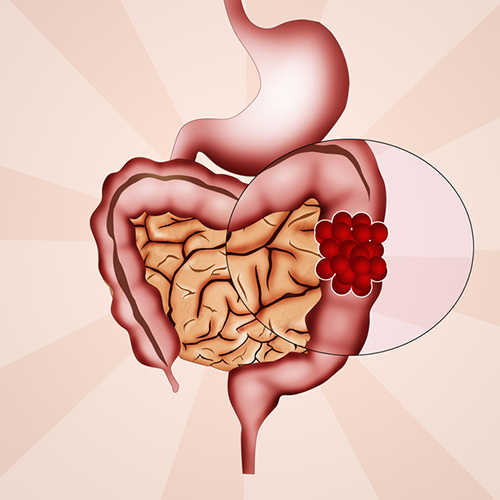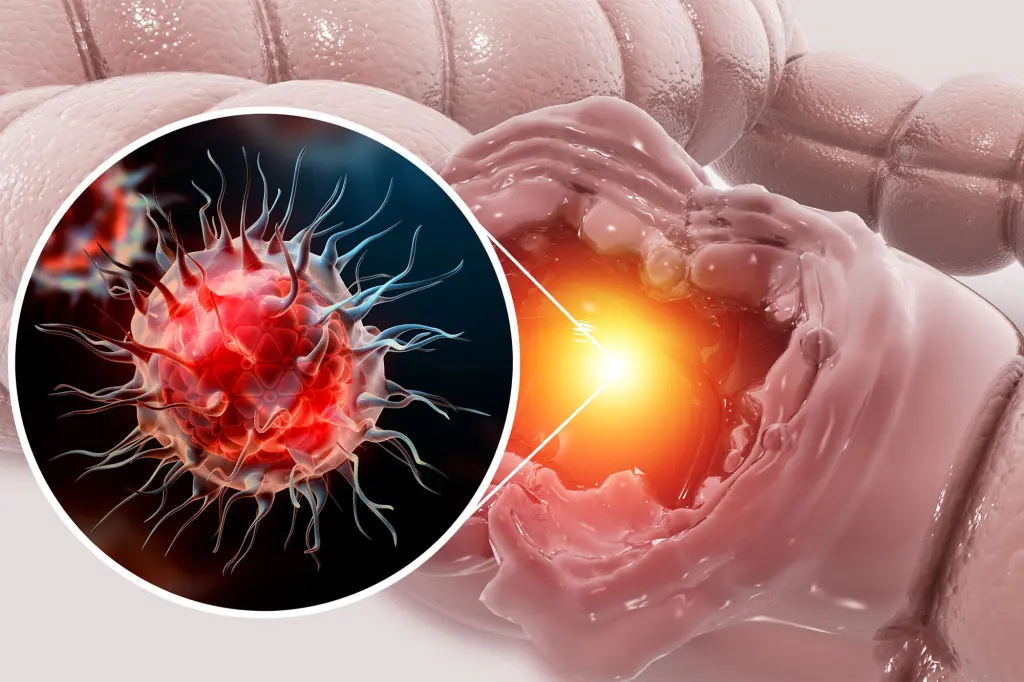Colorectal cancer, a rising concern, has drawn attention to an unlikely hero – the immune protein Ku70. Recent findings, detailed in a study published in Science Advances, highlight the crucial role played by Ku70 in suppressing colorectal cancer.
Understanding Ku70
Ku70, a DNA repair subunit protein encoded by the XRCC6 gene, has long been associated with repairing DNA through the non-homologous end-joining (NHEJ) pathway. Traditionally confined to its DNA repair role, recent research unveils additional dimensions to Ku70’s functionality. Beyond its primary role, Ku70 has demonstrated antimicrobial and anti-tumor properties.
The study delves into the Ku70-mediated Ras-ERK signaling pathway, emphasizing its potent tumor-suppressive function. Mutations in the Ku70 gene or reduced expression significantly elevate the risk of spontaneous intestinal cancer, as observed in murine models.

Experimental Approach
The study utilized a diverse sample group, including wild-type and genetically modified mice, subjected to colitis and colorectal tumorigenesis induction. Detailed analyses involved histology, immunohistochemistry, microscopy, immunoblotting, ELISAs, and RNA studies. The Ku70-ERK signaling pathway emerged as a tumor-suppressive mechanism, co-occurring with key genes implicated in intestinal cancers.
Key Findings and Implications
The research validates Ku70’s role in suppressing tumors, unraveling its mechanism of action. Notably, the study suggests a cell-specific function, with decreased Ku70 expression in epithelial and stromal cells from patients with Crohn’s disease or colorectal cancer. The formation of a cytosolic signalosome, involving Ras and Raf, adds a layer to Ku70’s anti-tumorigenic effect.
The Ku70-ERK signaling pathway, activated by the presence of cytoplasmic DNA, presents a potential link to the gut microbiome or damaged cellular components. This opens avenues for further research on the initiation triggers.
Therapeutic Potential
The study advocates for exploring Ku70 as a direct target for bowel cancer treatment. Unlike targeting the Ras-ERK pathway, which has encountered resistance in certain bowel cancer types, focusing on Ku70 might offer a more effective and precise approach. Small molecules interacting with Ku70’s DNA recognition site could manipulate its functions without disrupting crucial DNA repair mechanisms.
The findings also highlight Ku70 as a potential immune biomarker for early cancer detection. The presence or absence of Ku70 in precancerous polyps could serve as an indicator of a patient’s response to treatment, providing valuable insights for personalized therapies.
Conclusion
In unraveling the mysteries of Ku70, this study not only deepens our understanding of colorectal cancer suppression but also paves the way for innovative therapeutic strategies. Ku70 emerges as a key player in the intricate landscape of immune proteins, offering hope for more effective and targeted treatments against bowel cancer.
References
Pandey, A., Shen, C., Feng, S., et al. (2024). Ku70 senses cytosolic DNA and assembles a tumor-suppressive signalosome. Science Advances, DOI – 10.1126/sciadv.adh3409, link.
